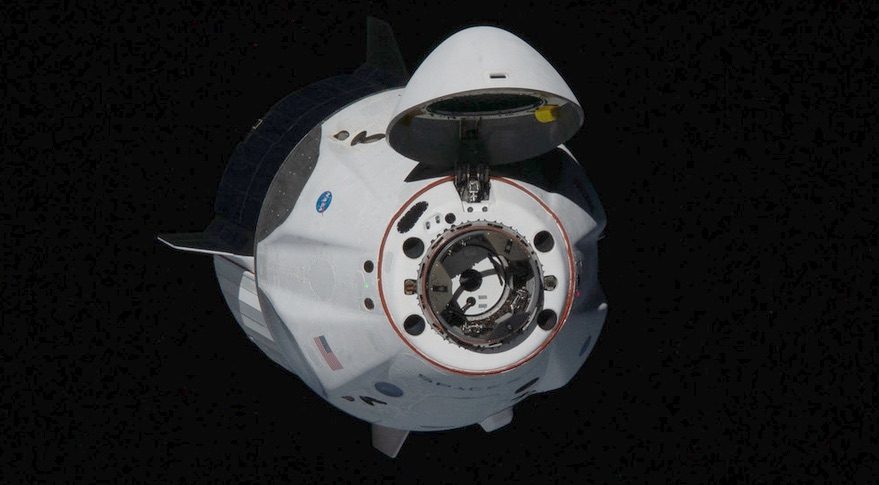Crew Dragon likely to support extended space station stay
Crew Dragon likely to support extended space station stay

WASHINGTON — SpaceX’s Crew Dragon spacecraft is performing well enough on orbit to give NASA confidence that the mission can last until August, an agency official said June 9.
Ken Bowersox, the acting associate administrator for human exploration and operations at NASA, told an online meeting of two National Academies committees that NASA had been monitoring the health of the Crew Dragon spacecraft since its launch May 30 on the Demo-2 mission, carrying NASA astronauts Bob Behnken and Doug Hurley to the International Space Station.
NASA, he noted, had not set a length for the mission, saying they wanted to see how the Dragon performed in space. “The Dragon is doing very well, so we think it’s reasonable for the crew to stay up there a month or two,” he told members of the Aeronautics and Space Engineering Board and Space Studies Board.
NASA said before the launch of Demo-2 that the spacecraft was rated to spend up to 119 days in orbit, with the performance of its solar arrays the limiting factor. NASA Administrator Jim Bridenstine said at one pre-launch briefing that NASA was targeting Aug. 30 for the launch of the first fully operational Crew Dragon mission, called Crew-1, and thus would plan to bring the Demo-2 spacecraft back about a month before that launch to provide enough time to review the spacecraft and formally certify Crew Dragon for use on routine crew rotation missions.
The agency’s original plan for Demo-2 was for it to be a short test flight, lasting roughly two weeks, but NASA chose to extend it to address a shortfall in crew time on the station. Only three people, including just one NASA astronaut, Chris Cassidy, were on the ISS at the time Demo-2 launched.
An extended stay would, among other things, allow Behnken and Cassidy, both experienced spacewalkers, to carry out several spacewalks to replace batteries in the station’s power system. Those spacewalks, Bowersox said, would be completed by late July. “About two months from now, we’ll start thinking about bringing Doug and Bob home.”
One issue is restrictions on acceptable winds for landing for the Demo-2 spacecraft, which he said is stricter than the limitations for later Crew Dragon spacecraft. “We’ll need to provide extra lead time for the weather possibilities, but I think it will all work out in August,” he said. “August is often a light wind month in the parts of the Gulf [of Mexico] and the east coast of Florida that we’re looking at landing, so I think we’ll be able to find a good opportunity.”
Bridenstine also mentioned weather as one issue determining when to bring Behnken and Hurley home on the Demo-2 Crew Dragon. “Remember, this is a test flight, and as such, if we have a good window to come home and they’re not necessary on the International Space Station, we will be taking it,” he said at a May 26 briefing.
Crew Dragon and Boeing’s CST-100 Starliner are intended to restore human orbital spaceflight capability for the United States after the retirement of the space shuttle in 2011. Those vehicles also promised to offer lower costs to both save NASA money and to attract other customers.
Bowersox, though, said the cost savings that both commercial crew and cargo vehicles provide compared to the shuttle, on a per-seat or per-kilogram basis, aren’t as big as expected. “It’s kind of surprising. We did lower the costs, but we didn’t lower it as much as we were hoping,” he said. “People were hoping for a factor of 10 reduction in costs, right? And we’re just not there. I’d say it’s probably more like 20% to 40%.”
However, he said the commercial vehicles, because they are smaller than the shuttle, are significantly less expensive to operate on a per-flight basis. “If you have more commercial participation, costs can come down more,” he said. “I think there’s tremendous promise. I think we’re on a good path.”
He added that it’s possible that companies like Elon Musk’s SpaceX with its next-generation Starship launch system under development might yet achieve that factor of 10 reduction in costs. “I wouldn’t bet against Elon.”
Comments
Post a Comment